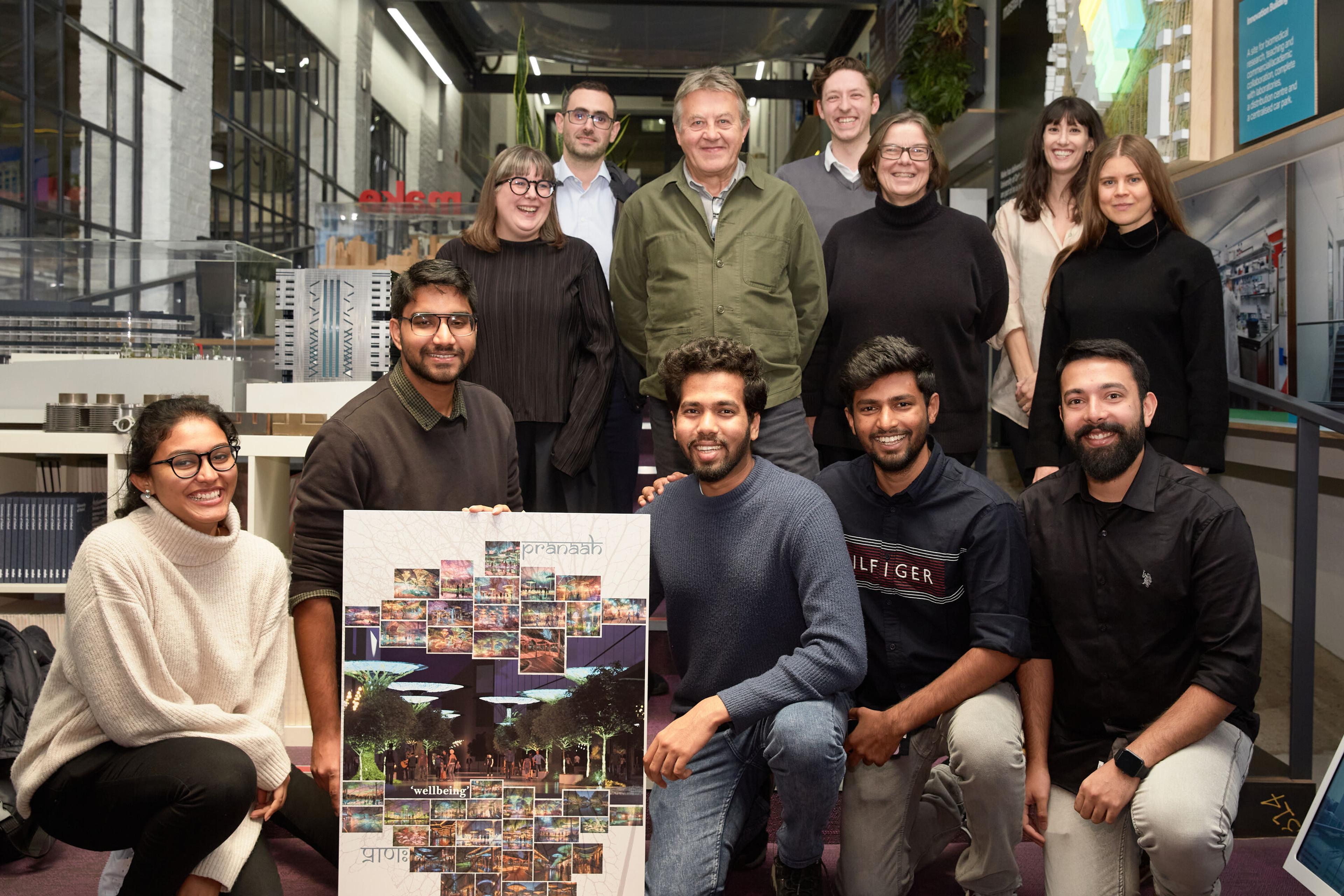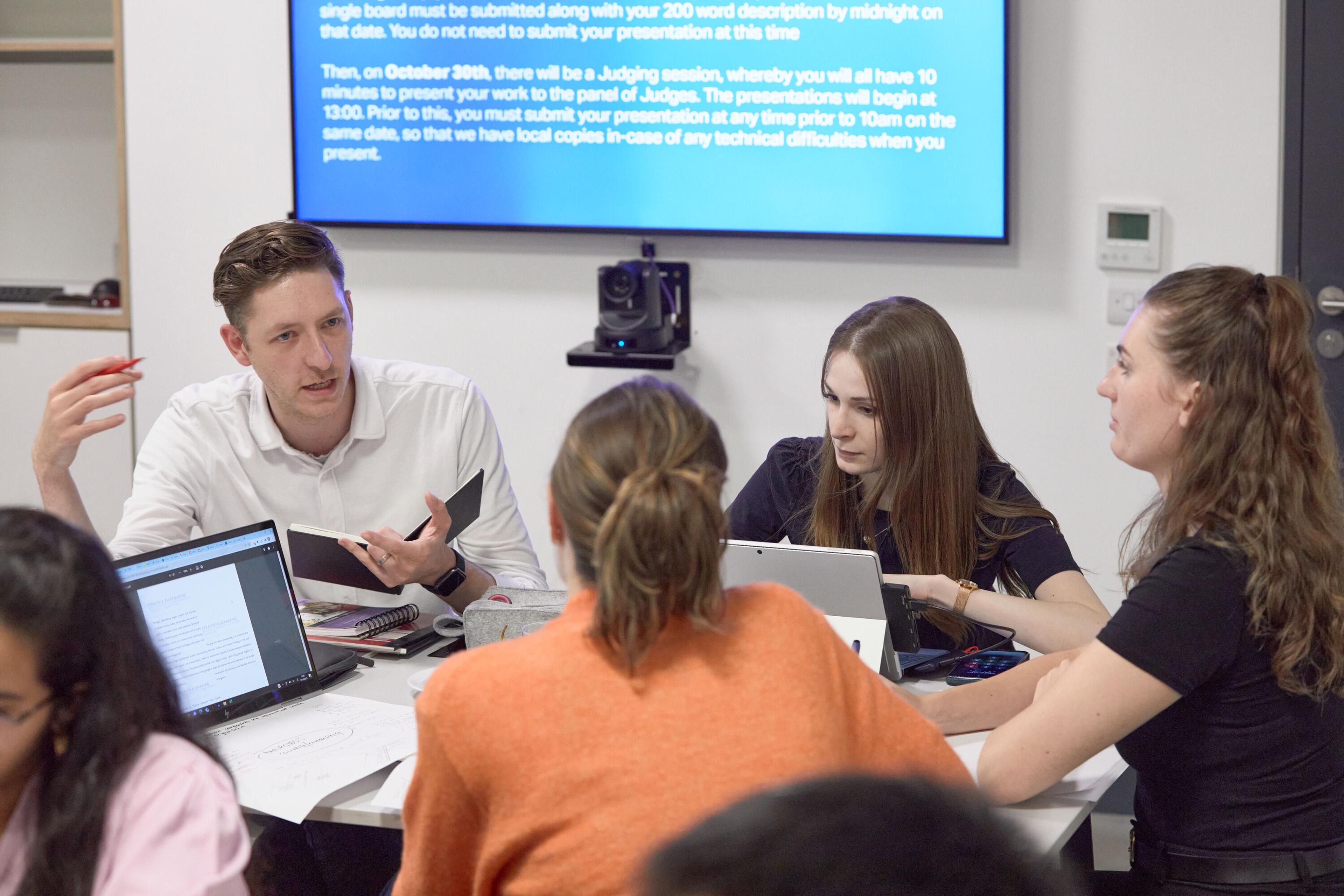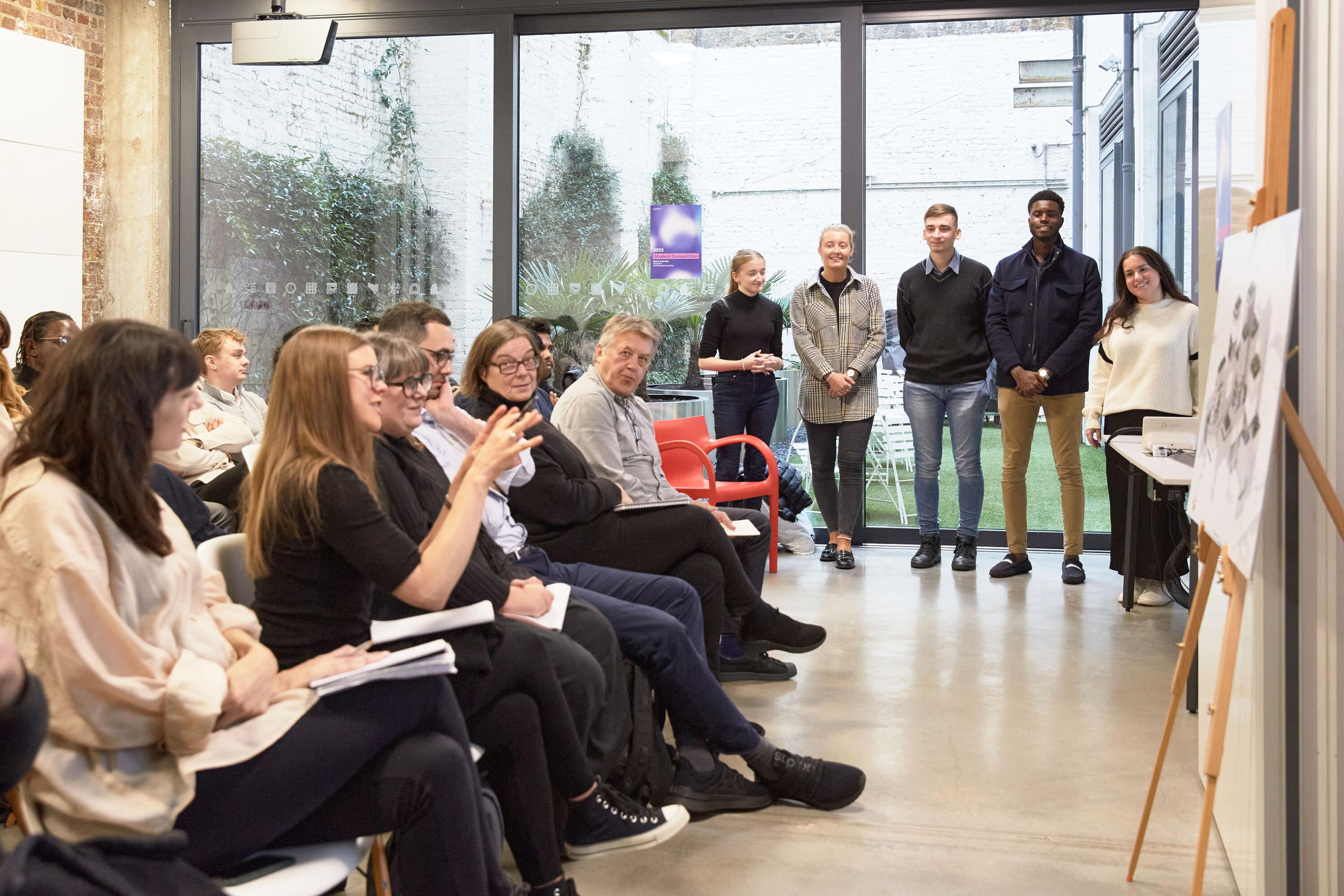Design concept for bioluminescent street lighting wins the FSF’s latest Nature in the City student competition
A team of five architecture students from University of Portsmouth has won the 2023 Future Spaces Foundation student design competition with a proposal for algae-powered lighting devices designed to animate and revitalise a neglected area of central Portsmouth.
This year’s competition is the second in our Nature in the City series, and challenged eight teams of architecture students from five UK universities to explore socially inclusive nature-based design interventions for the city of the near future. As in years prior, teams were assigned individual motifs to drive their responses forward, from ‘exchange’ to ‘belonging’ to ‘relationships’.

Congratulations to Bennet Isac, Jeremiah Alex Abraham, Adithya Prasanna Kumar, Gurucharan Ganesh and Sherjin Raju from Team Wellbeing, whose design harnesses the bioluminescent properties of phytoplankton as an alternative to traditional forms of electricity. Their entry, which won them a £1,250 prize, was inspired by their experience as international students living in an area with little nightlife.
The proposal aims to transform a poorly lit, underused street near University of Portsmouth with sculptural bioluminescent modules that provide lighting and space for nighttime activity, including markets and performances. The team chose a type of phytoplankton with scientific links to enhanced human wellbeing, and specified ways it could be repurposed at the end of its lifespan (for example, as fertiliser for local planting). Judges were impressed with the strong personal narrative underpinning their proposal, as well as their in-depth research into species and precedents.
The Nature in the City competition series stems from FSF research into the benefits of nature-based design in urban contexts, carried out as part of our Building Natural Connections campaign. Urban infrastructure that embraces nature to address societal challenges – including health, wellbeing and social inclusion – is crucial as the world’s population continues to migrate towards cities.
This year’s competition saw 38 students join us at Make’s London studio for a day-long design charrette followed by 2 weeks of independent design work, then a formal presentation of their ideas to an FSF-assembled judging panel. Participating universities included University of Greenwich, Anglia Ruskin University, Leeds Beckett University, Manchester School of Architecture and University of Portsmouth.



Peter Greaves, the FSF’s architectural lead and organiser of the competition, said: “Every year we’re impressed with the standard of entries, and 2023 is no exception. We saw creativity and innovation across the board, which made for some exciting deliberations in the judging room.”
Sara Veale, managing editor of the FSF, added: “It’s great to see the architects of the future think outside the bounds of greenery as they consider new ways to incorporate nature in our cities. The winning team put forward a project with social, economic and environmental considerations – all crucial pillars of sustainability in the built environment.”
Many thanks to all the participating students, as well as this year’s guest judges: Cara Bamford (Make), Nicolo Bencini (AKTII), Cecilia Lindström (Future Places Studio), Lee Mallett (Urbik) and Laura Mark (University of Sheffield).